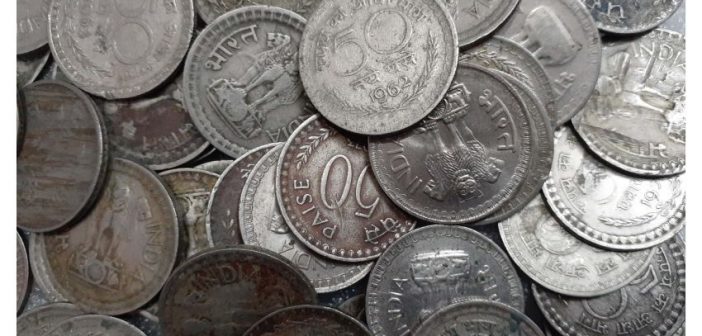The discontinuation of small value coins in India has sparked a series of economic challenges, impacting businesses, consumers, and the broader economy. As the Reserve Bank of India (RBI) phases out coins of lower denominations, concerns over transactional difficulties, pricing adjustments, and financial implications have come to the forefront, highlighting the complexities of currency management in a rapidly evolving digital age.
Background and Policy Shift
The decision to phase out small value coins such as 25 Paise and 50 Paise stems from a broader effort by the RBI to streamline currency circulation, reduce minting costs, and promote digital transactions. With the proliferation of electronic payment systems and the growing preference for cashless transactions, the relevance and utility of small denomination coins have diminished in recent years.
However, the abrupt discontinuation of small value coins has presented numerous challenges for businesses and consumers, particularly in sectors reliant on cash transactions and those serving low-income communities. From street vendors to small retailers, the absence of small denomination coins disrupts everyday transactions and complicates pricing mechanisms, leading to operational inefficiencies and financial uncertainties.
Impact on Businesses and Consumers
Small retailers and vendors are among the hardest hit by the discontinuation of small value coins, as they rely heavily on cash transactions and operate on thin profit margins. The inability to provide exact change or adjust prices to reflect rounding-off practices undermines customer satisfaction and erodes trust in business transactions, potentially leading to revenue losses and decreased foot traffic.
Moreover, the discontinuation of small denomination coins exacerbates the financial burden on low-income households, who rely on cash transactions for their day-to-day expenses. For many marginalized communities, every rupee counts, and the unavailability of small value coins amplifies the impact of inflation and purchasing power disparities, further widening socioeconomic inequalities.
Challenges in Pricing and Transactions
The absence of small denomination coins poses significant challenges in pricing and transactional processes across various sectors of the economy. Businesses are forced to resort to rounding-off practices or adjust prices to the nearest higher denomination, leading to perceptions of price inflation and consumer dissatisfaction. In a country where price sensitivity is high, even marginal price adjustments can have far-reaching implications for consumer behavior and market dynamics.
Furthermore, the discontinuation of small value coins complicates transactional logistics and accounting practices for businesses, as they grapple with the need to reconcile cash transactions and maintain accurate financial records. The lack of standardized guidelines and operational protocols exacerbates the challenges faced by businesses, hindering their ability to adapt to the evolving currency landscape.
Policy Implications and Way Forward
The discontinuation of small value coins underscores the need for comprehensive currency management policies that balance the demands of a digitized economy with the realities of cash-based transactions. While promoting digital payments and financial inclusion is commendable, policymakers must ensure that measures to phase out physical currency are implemented in a gradual and inclusive manner, taking into account the diverse needs and realities of Indian society.
Moreover, efforts to address the challenges arising from the discontinuation of small value coins should prioritize stakeholder engagement, transparency, and accountability. Collaborative initiatives involving government agencies, financial institutions, businesses, and civil society organizations are essential to develop pragmatic solutions that mitigate the adverse effects of currency transitions and safeguard the interests of all stakeholders.
In conclusion, the discontinuation of small value coins in India presents a multifaceted set of challenges that warrant careful consideration and proactive intervention. As the country navigates the complexities of currency management and economic transformation, policymakers must adopt a holistic approach that balances the imperatives of modernization with the imperative of financial inclusion and social equity. Only through concerted efforts can India overcome the hurdles posed by currency transitions and build a more resilient and inclusive economic landscape for the future.






